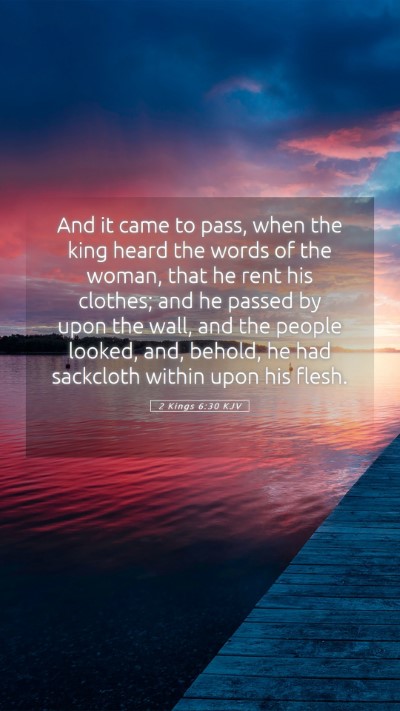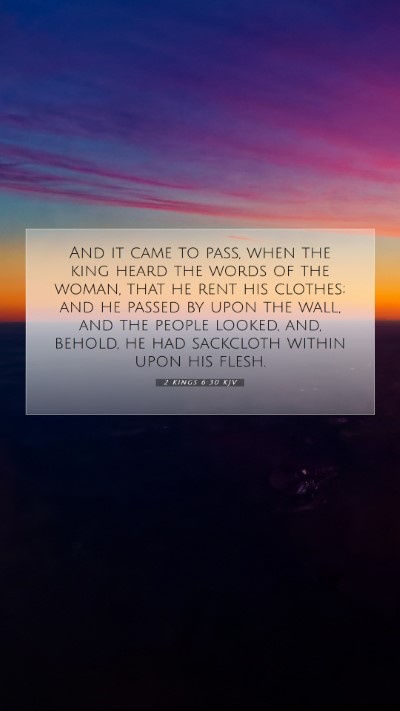Old Testament
Genesis Exodus Leviticus Numbers Deuteronomy Joshua Judges Ruth 1 Samuel 2 Samuel 1 Kings 2 Kings 1 Chronicles 2 Chronicles Ezra Nehemiah Esther Job Psalms Proverbs Ecclesiastes Song of Solomon Isaiah Jeremiah Lamentations Ezekiel Daniel Hosea Joel Amos Obadiah Jonah Micah Nahum Habakkuk Zephaniah Haggai Zechariah MalachiVerse
2 Kings 6:1 2 Kings 6:2 2 Kings 6:3 2 Kings 6:4 2 Kings 6:5 2 Kings 6:6 2 Kings 6:7 2 Kings 6:8 2 Kings 6:9 2 Kings 6:10 2 Kings 6:11 2 Kings 6:12 2 Kings 6:13 2 Kings 6:14 2 Kings 6:15 2 Kings 6:16 2 Kings 6:17 2 Kings 6:18 2 Kings 6:19 2 Kings 6:20 2 Kings 6:21 2 Kings 6:22 2 Kings 6:23 2 Kings 6:24 2 Kings 6:25 2 Kings 6:26 2 Kings 6:27 2 Kings 6:28 2 Kings 6:29 2 Kings 6:30 2 Kings 6:31 2 Kings 6:32 2 Kings 6:33

